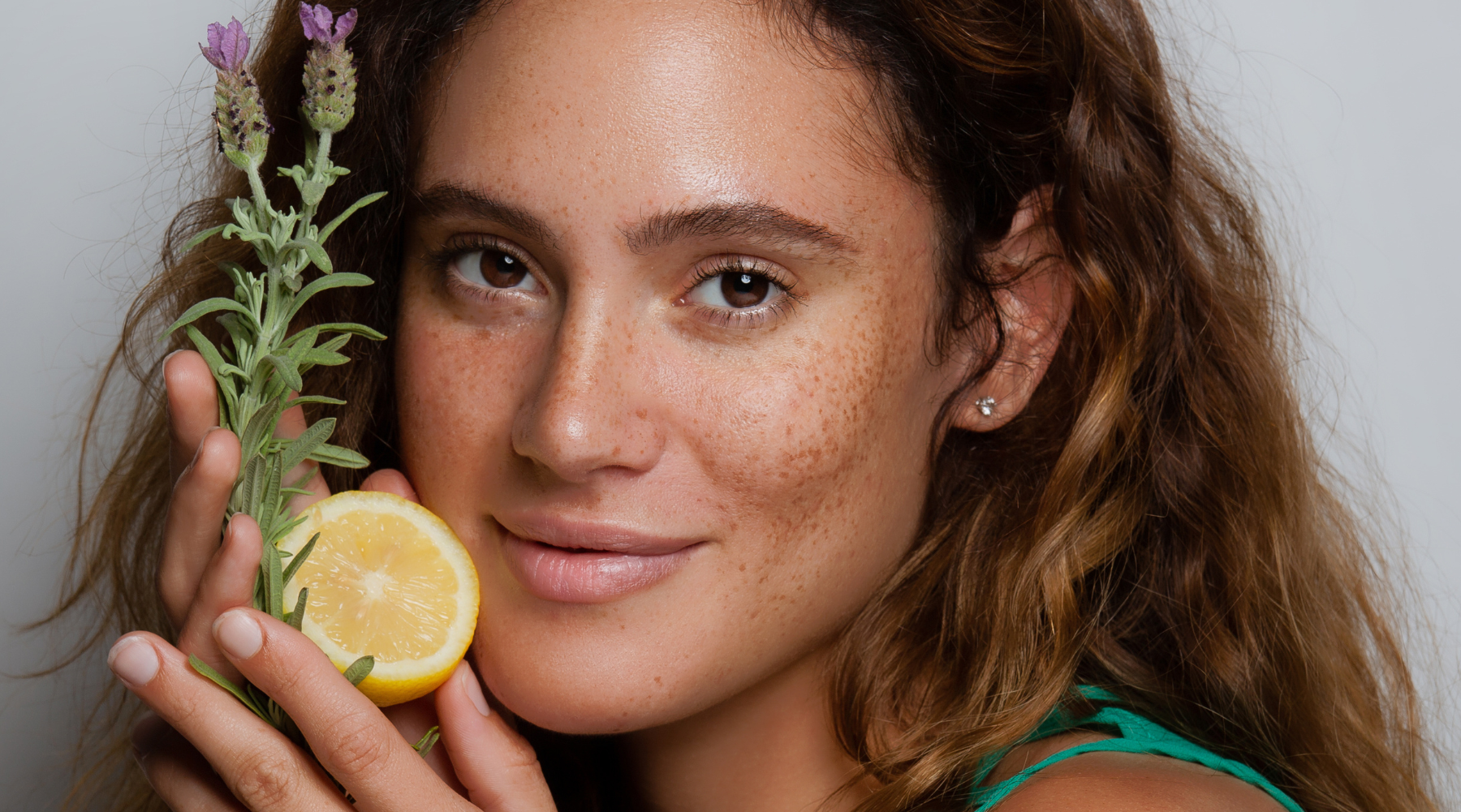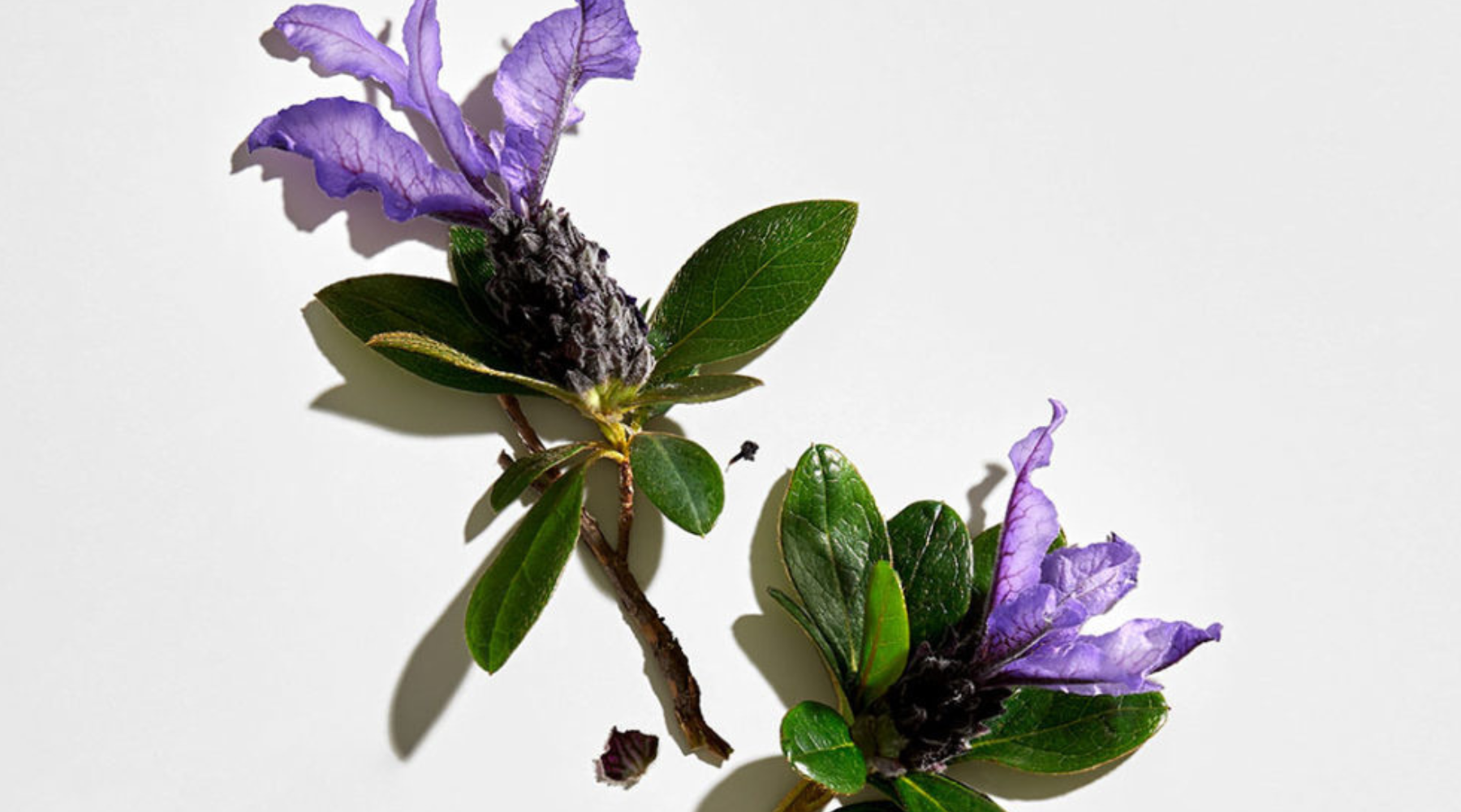
How Do I Identify My Skin Type?
Figuring out your skin type is the first step on your journey to better skin. But with all the information out there, it can be hard to know where to start.
In this blog, we’ll break it down for you and teach you how to identify your skin type with 2 simple methods. By the end, you’ll know what to do to take care of your skin and achieve the best results.
The importance of knowing your skin type
So you've decided it's time to get serious about your skincare routine. Good for you! But before you can start, there's one important step you need to take: figuring out your skin type.
Why is this so important? Because the wrong products can actually make your skin problems worse. And if you're using the wrong products, you're not getting the most out of your skincare routine.
There are five main skin types: dry, oily, combination, sensitive and mature. Figuring out which one you are is the first step on the road to perfect skin.

The different skin types
Normal
Normal skin is a term used to describe a well-balanced complexion that is not too oily and not too dry. Normal skin has little to no blemishes or imperfections and barely visible pores. People with normal skin will rarely experience sensitivity and tend to have a radiant complexion.
Dry
Dry skin describes a skin type that produces less sebum than normal skin which creates a duller and sometimes blotchy complexion. Similarly to normal skin, people with dry skin tend to have barely visible pores. However, dry skin can cause scaling, flaking, itchiness and irritation.
Oily
Oily skin describes a skin type that produces an excess of sebum that makes the skin appear shiny and greasy. If you have an oily skin type, you are much more likely to enlarge pores and experience acne breakouts.
Combination
Combination skin describes someone that has both oily and dry areas of the face. Most often, this results in a more oily t-zone (forehead, nose and chin) and dryer areas elsewhere. If you have combination skin, you’re more likely to notice more visible pores within your t-zone than other areas of your face.
Sensitive Skin
Experts generally agree that sensitivity ultimately stems from a disruption in the skin’s natural moisture barrier. When the barrier doesn’t work properly, stressors that it should be able to resist can get past your skin’s weakened defences and wreak havoc, causing redness and discomfort. To help keep your skin feeling comfortable, we recommend reaching for mild products made specifically for stressed skin.
How to figure out your skin type
Figuring out your skin type isn't difficult, but it does take a bit of time and effort.
-
The Bare-Face Method
This at-home test allows you to understand what kind of skin you have by just observing how your skin behaves after cleansing. You can start by cleansing your face, a cleanser like our Absolute Cleansing Oil is gentle for all skin types so ideal to do this test.
After you finish cleansing your skin, refrain from applying any skincare products, let your skin react to the elements and after 25-30 mins observe how your skin feels and looks.
If after this time your skin appears shiny throughout, you likely have oily skin; if it feels tight and is flaky or scaly, you likely have dry skin; if the shine is only in your T-Zone, you probably have combination skin; irritation means your skin is sensitive and if your skin feels hydrated and comfortable, but not oily, you likely have normal skin (congratulations!).

-
The Blotting Sheet Method
Another simple way to determine your skin type at home is to press a clean blotting paper against different areas of your face. When pressed to the skin, blotting sheets absorb oil - so ideal to help you understand your skin type.
After washing your face, patting it dry and allowing it to rest for 30 minutes, press a blotting sheet to various areas of your face, then hold the sheet up to the light to see the oil markings. The more oil on the sheet the more oily your skin is, similarly if you see little to no oil mark that means you’re most likely to have dry skin. Finally, if the blotting sheet reveals minimal oil from your T-zone only, you probably have a combination or normal skin type.

Can Your Skin Type Change?
If your skin type changes, don't worry – it's totally normal! In fact, your skin type can change as often as every season.
There are a few things you can do if you notice your skin has changed:
- First, take a closer look at your skincare routine. Are you using the same products as before? Are you using the right products for your current skin type? Sometimes all it takes is a tweak to your current routine to help get your skin back on track.
- Second, think about your lifestyle. What's been going on lately that might be affecting your skin? Have you been stressed out? Overworked? Not getting enough sleep? All of these things can definitely impact how your skin looks and feels.
- Third, consult with a skincare professional. Sometimes it can be helpful to get expert advice to figure out what's going on with your skin. A professional will be able to recommend the right products and treatments for you, based on your individual needs.
Tips For Success

Start by identifying your skin type. Do this by looking at your skin in the morning and evening. Take note of how oily your skin is, how dry it is, and how easily it becomes red or irritated.
Oily Skin:
Oily skin is especially vulnerable to oil-related concerns, such as blemishes, shininess, and clogged pores. One thing you need to remember is that even if you have oily skin, you still need to moisturise. If you have oily skin, you want to reach for products that provide lightweight hydration, have non comedogenic ingredients and help absorb excess oil without stripping your skin’s natural moisture barrier, which serves as the first line of defence between you and the outside world.
Gently exfoliating your skin should help, follow up with a gentle cleanser, our Absolute Cleansing Oil can help balance oil production and it does not contain any comedogenic ingredients which means it will not contribute to clogging your pores.

Dry Skin:
As we’ve mentioned before, the lack of oil present in dry skin makes it less able to retain water. Without sufficient moisture, the skin’s natural moisture barrier can’t work as effectively as it needs to. Due to the lack of hydration dry skin can be exposed to premature signs of ageing.
For this we recommend products like our Precious Facial Oil or our 24Hr Rosehip Face Serum, an multi-award winning face serum designed to provide intensive care to even the most demanding skin, this concentrated formula is packed with plant extracts, vitamins, antioxidants and calming ingredients.
The area around your eyes is the most delicate and thin area so it is also exposed to be the driest one, for this we recommend our Eye Wow! Eye Serum, 12 plant extracts blended together in a cold process formula to help target dark circles, fine lines, puffiness, hydration and comfort.

Combination Skin:
Combination skin can be a tricky one as you’re not trying to tackle only one concern - For this skin type the most assuring approach is to provide lightweight moisture without weighing down or drying out your skin. Balance is key. One thing you would like to try as well is segmenting your skincare products to certain areas of your face. Choose more hydrating, moisturising products like serums and oils to those areas where skin appears normal or dry - As for oilier areas make sure to keep them exfoliated and use lightweight moisturisers.
For this we would recommend a moisturiser like our Active Rosehip Day Cream, it not only delivers the right amount of hydration thanks to one of its main ingredients, Hyaluronic Acid, but also because it leaves a matte finish, making it ideal for those oily areas.

Sensitive Skin:
Sensitive skin is increasingly common. The factors contributing to this increase are manifold ranging from our own health, to different stresses in our life, environmental considerations, personal care and laundry care and a huge increase in product choice. Our skin is being exposed to a lot! It’s important if you have a known or suspected allergy that you avoid products containing these ingredients - to that end we suggest that you keep the packaging for all skincare products that you use so you can see what’s in your products and identify any possible ingredients that don't suit you.
At Kinvara our ingredients are food grade, Ecocert approved, all our plant oils are certified organic (except watermelon) and we adopt a conservative approach to product development to formulate with an abundance of caution.
Also, Kinvara Skincare products do NOT contain any nasties or dubious ingredients.
Our 24Hr Rosehip Face Serum is a mega calming hydrator that has been a transformative product for many of our customers and it will leave your skin glowing.

Normal Skin:
Last but not least is normal skin—the easiest skin type to care for. Since those with normal skin don’t have any major concerns to address, your priorities should simply be maintaining your skin’s natural balance. Your routine should include at minimum - a cleanser, a face serum, a lightweight moisturiser and sunscreen.
At Kinvara we have the ideal bundle for normal skins, our Best Sellers is also the perfect gift for the many who wish to try the products for themselves. - In these three products you will find what everyone needs - a fabulous cleansing oil, a luxurious face serum and an effective moisturiser.
Conclusion:
Figuring out your skin type can be a challenge, but it's worth it to find the products that work best for you. Once you know your skin type, you can start looking for skincare products that address your specific needs. Finally, remember that it's important to be patient when finding the right products for your skin type. Don't give up if you don't see results immediately – it often takes time to correct years of damage. Just be consistent with using the products and you'll start to see a difference. And, don't forget to consult with a dermatologist if you're having trouble figuring out your skin type or if you're experiencing any skin problems.



